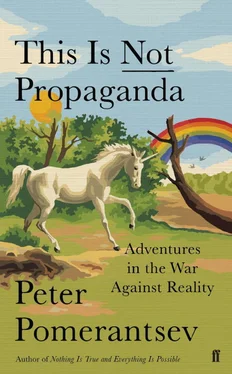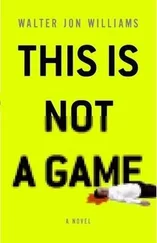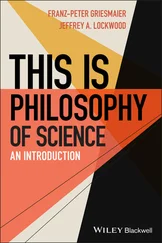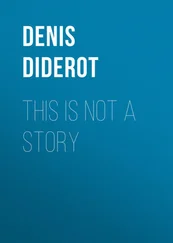In the cloister-like courtyard of St Stephen’s School in Rome I met everyone from a guy in Los Angeles who monitors the accuracy of celebrity gossip through to those for whom facts are matters of life and death. Fact-checkers from India, for example, told me about efforts to stop murder sprees by squads of vigilantes. Hindu nationalists were spreading surreptitious rumours on closed social media groups about Muslim butchers, falsely accusing them of slaughtering cows, the Hindus’ sacred animal. Fanatics would then descend on the innocent butchers and slaughter them instead. In Burma and Sri Lanka, where Facebook has been used to incite ethnic cleansing, the situation was even worse.
Looking around the arches of the courtyard I could see editors from Rappler, fact-checkers from Ukraine, the western Balkans, Mexico… When the representative from Facebook took the floor, she was pilloried for allowing blatantly untrue news stories to spread on the platform and for allowing it to be a conduit for threats against fact-checkers.
The insurmountable problem is that for all the social media companies’ statements of concern about this problem, it’s the way many of their platforms are designed and how they make money that create an environment in which accuracy, impartiality and fairness are, at best, secondary.
Back in 2011 Guillaume Chaslot, an engineer at Google with a PhD in artificial intelligence, discovered that the way YouTube was designed meant that it served people ever more of the same content, creating and reinforcing one point of view – and not one necessarily based on its factuality. So if you were to watch one video full of inaccurate, often downright disinformative content, the algorithm would keep feeding you similar material. YouTube didn’t want to be the judge of what is true, but it wanted its algorithms to be the judge of what gets promoted. As a consequence, untrue content could get massively augmented. Chaslot offered his bosses potential ways of fixing the problem. Couldn’t one offer people more diverse content? He was told this was not ‘the focus’. YouTube was primarily interested in increasing the time people spent watching it. It struck him as a terrible way to define desire: purely by how much time someone spent staring at a screen – a far cry from the patrician ‘public service’ ethos of the BBC. [8]It’s also, Chaslot told me, easy to manipulate: if you have the resources to hire huge numbers of people to watch certain videos and create tons of content on a specific subject, that helps to promote those videos. Having many YouTube channels working together was also a good way to get your content ‘recommended’. There was a reason, he argued, why the Russian state broadcaster RT had such an impressive array of YouTube channels.
In a study on ‘Emotional Dynamics in the Age of Misinformation’, [9]Dr Walter Quattrociocchi of the University of Venice analysed fifty-four million comments in various Facebook groups over four years and found that the longer a discussion continued, the more extreme people’s comments became. ‘Cognitive patterns in echo chambers tend towards polarisation,’ he concluded. This, argued Quattrociocchi, showed up the emotional structure of social media. We go online looking for the emotional boost delivered by likes and retweets. Social media is a sort of mini-narcissism engine that can never quite be satisfied, leading us to take up more radical positions to get more attention. It really doesn’t matter if stories are accurate or not, let alone impartial: you’re not looking to win an argument in a public space with a neutral audience; you just want to get the most attention possible from like-minded people. ‘Online dynamics induce distortion,’ concluded Quattrociocchi. It’s a lamentable loop: social media drives more polarised behaviour, which leads to demands for more sensationalised content, or plain lies. ‘Fake news’ is a symptom of the way social media is designed.
There’s something even more insidious going on here. In his early Cold War essays, Igor celebrated being as individualistic as possible as a way to resist oppression. Another exiled Soviet poet, the Nobel Prize-winner Joseph Brodsky, who had emigrated in 1972, put it best in his commencement speech at Williams College in 1984: ‘The surest defence against Evil is extreme individualism, originality of thinking, whimsicality, even – if you will – eccentricity. That is, something that can’t be feigned, faked, imitated.’ [10]
In the Cold War ‘extreme individualism’ was interlinked with the struggle to receive and transmit accurate information, while freedom of speech was associated with freedom of artistic self-expression, both opposed by regimes that censored facts and ‘whimsicality’. Now social media offers limitless fields for a form of extreme individualism. Express yourself to your heart’s content! But its very construction pushes away from factuality.
And there’s another twist. This self-expression is then transmuted into data: the frequency of certain words, times of postings and what that says about us, our movements and language – all passed to forces that influence us with campaigns and adverts we might not even be aware of. But if you were to look for your own data imprint among the data brokers in the hope of finding a reflection of your true self, you will be disappointed. Instead, there are broken bits of information (something about health, something about shopping), jagged edges that can be added and stacked in different patterns according to various short-term purposes, little writhing squiggles of impulses and habits that can be impelled to vibrate for a few seconds to get you to buy something or vote for someone. Social media, that little narcissism machine, the easiest way we have ever had to place ourselves on a pedestal of vanity, is also the mechanism that most efficiently breaks us up.
That extreme individualism comes with its own dangers is already there in Igor’s early stories. Reading them again I notice how often the impressionistic, self-obsessed narrator ends up subtly undermined. At the end you realise they have been so caught up in themselves that they don’t notice what is going on around them, are losing touch with reality altogether.
Why We’re ‘Post-Fact’
Social media technology, combined with a world view in which all information is part of war and impartiality is impossible, has helped to undermine the sacrosanctity of facts. But the more I thought about the issue, the more it seemed to me I was asking the question the wrong way. Instead of questioning why facts had become irrelevant, I should ascertain why they had ever been relevant in political speech at all. And why were we seeing such similar tactics from both of the former Cold War superpowers?
Facts, after all, are not always the most pleasant things; they can be reminders, as I had discovered with my teacher Mrs Stern, of our place and our limitations, our failures and, ultimately, our mortality. There is a sort of adolescent joy in throwing off their weight, of giving a great big ‘fuck you’ to glum reality. The very pleasure of a Putin or a Trump is the release from constraint they offer.
But though facts can be unpleasant, they are useful. You especially need them if you are constructing something in the real world. There are no post-truth moments if you are building a bridge, for example. Facts are necessary to show what you are building, how it will work, why it won’t collapse. In politics facts are necessary to show that you are pursuing some rational idea of progress: here are our aims, here is how we prove we are achieving them, this is how they improve your lives. The need for facts is predicated on the notion of an evidence-based future.
In the Cold War both sides were engaged in what had begun as a debate about which system – democratic capitalism or Communism – would deliver a rosier future for the world. The only way to prove you were achieving this future was to provide evidence. Communism, for all its many perversities and cruelties, was meant to be the ultimate scientific Enlightenment project. Those who lived under it knew it was a sham, but it was connected to a paradigm of Soviet economic growth based on Marxist–Leninist theory, whose objective laws of historical development were supposedly playing out as the theory maintained. Thus, it was also possible to catch the USSR out by exposing how it lied, by broadcasting accurate information or by confronting its leaders with facts.
Читать дальше












